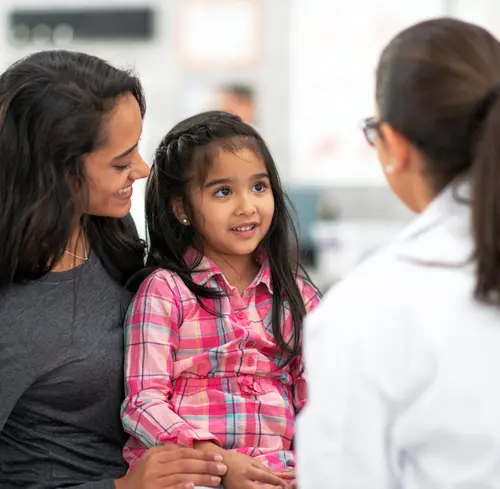When it comes to ADHD treatment for your child, you might first think about medication-based approaches. Though meds can be an effective tool, they can’t do everything, including help your child control their behavior, boost their self-esteem, or help you learn the right parenting strategies.
Unlike the fleeting effects of a pill, family therapy can help support your child with ADHD and help your whole family work better together, with lasting results.
How Family Therapy Helps
You may have found that “traditional” parenting styles and reward-and-punishment measures don’t always work if you have a child with ADHD. Their struggles to pay attention and control their impulses often make them more unruly than other children. But constant punishment can make their conduct even worse, and chip away at their self-image.
Family therapy can help your household – and all the people in it – run more smoothly. Treatment can be parent-directed or include your child in sessions. In general, all approaches can:
- Teach your family to work better as a unit.
- Strengthen your child’s sense of control.
- Improve their behavior at school, home, with other people, and in public.
- Show you more effective ways to parent.
Parent-Directed Treatment
If you have a child with ADHD who’s under age 12, the best behavior therapy might be for you to get it. Parent training – also called family therapy, parent behavior therapy, or behavioral parent training – takes the view that you are your child’s best teacher. This therapy model works, experts say, because younger children can’t manage their own actions without family support.
You’ll meet with a therapist for about eight to 16 sessions to master new parenting techniques and learn what makes your child tick. Your child won’t go along for the core sessions until they’re ready to join you in what’s known as integrated parent-child treatment, when they’re around age 8 to 10. For now, your sessions might include just you and your spouse or partner. Your meetings also might include other families in a group. Online courses are also available.
In between sessions, you’ll practice your new skills at home. Your therapist might meet with your whole family now and then to see how the techniques are working and check on your progress.
What You’ll Learn
Parent training touches on all aspects of daily life, including:
- How to set limits, make clear guidelines, and get across what you expect from your child in ways they can understand.
- Create an organized household with set rules and routines.
- Target particular behaviors to work on and practice follow-through with suitable consequences. These include rewards for positive behavior. For example, your system might take away privileges for a certain amount of time, or use time-outs for misbehavior. You’ll also learn when to ignore the acting up.
- Help turn your child’s mistakes into chances to learn. Kids with ADHD sometimes have trouble seeing that link on their own.
- How to keep your child’s other caregivers in the loop to help them follow the new techniques.
Family Therapy and ADHD Meds
For children younger than 6, experts strongly favor trying parent behavior therapy before taking medication. This doesn’t mean meds shouldn’t be used at all. Therapy works and lasts longer, without the side effects. Behavior therapy also can improve symptoms of closely related conditions to ADHD, without harm or risk in case your child is misdiagnosed.
Studies show family therapy – whether parent focused or with both child and parents – coupled with meds for school-age children can make a winning combo. Even then, though, the FDA says that meds should only be prescribed for kids 5 and over if therapy isn’t helping in at least one part of their lives.
Also, research suggests children who take meds and benefit from family therapy might not need as high a dosage.
Integrated Parent-Child Treatment
Though parent-directed training often is suggested if you have younger children, studies show big payoffs when parents and children meet together with a therapist – or even play parent/child soccer, in one case. They include:
- Families can talk about and practice strategies over a long period, i.e., eight to 12 sessions.
- Parenting improves.
- Family relationships get better.
- Family stress goes down.
- It’s easier to monitor behavior and success when all are present.
- Discipline becomes more effective.
This style of treatment works best during adolescence and young adulthood. While ADHD symptoms might fade over time, your child might still have academic and social problems. Family dysfunction can linger, too.
Even when your child is a teen, you’ll still learn high-value parenting techniques. They’ll just adapt with your child’s age and personality. Some differences may include:
- Teens attend therapy meetings with parents.
- Your teen can help come up with solutions for poor behavior and brainstorm consequences, such as trading chores for time-outs.
- They can set reward “targets” such as a special item or activity for better grades. Perks might include things that are important to them, such as going out with friends.

